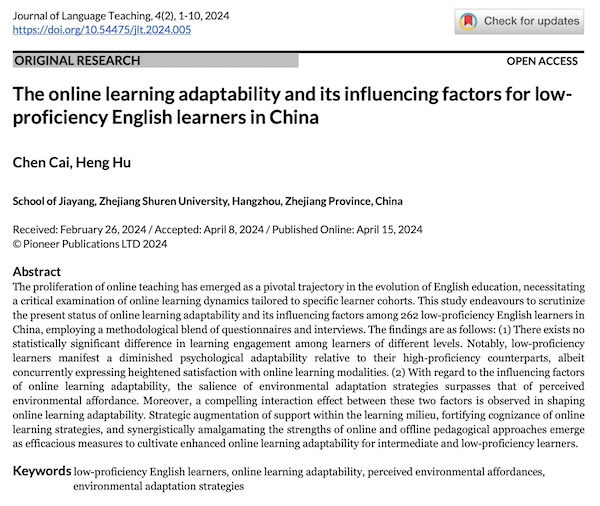The online learning adaptability and its influencing factors for low-proficiency English learners in China
DOI:
https://doi.org/10.54475/jlt.2024.005Keywords:
online learning adaptability, perceived environmental affordances, environmental adaptation strategies , low-proficiency English learnersAbstract
The proliferation of online teaching has emerged as a pivotal trajectory in the evolution of English education, necessitating a critical examination of online learning dynamics tailored to specific learner cohorts. This study endeavours to scrutinize the present status of online learning adaptability and its influencing factors among 262 low-proficiency English learners in China, employing a methodological blend of questionnaires and interviews. The findings are as follows: (1) There exists no statistically significant difference in learning engagement among learners of different levels. Notably, low-proficiency learners manifest a diminished psychological adaptability relative to their high-proficiency counterparts, albeit concurrently expressing heightened satisfaction with online learning modalities. (2) With regard to the influencing factors of online learning adaptability, the salience of environmental adaptation strategies surpasses that of perceived environmental affordance. Moreover, a compelling interaction effect between these two factors is observed in shaping online learning adaptability. Strategic augmentation of support within the learning milieu, fortifying cognizance of online learning strategies, and synergistically amalgamating the strengths of online and offline pedagogical approaches emerge as efficacious measures to cultivate enhanced online learning adaptability for intermediate and low-proficiency learners.

Downloads
Published
Issue
Section
License
Copyright (c) 2024 Journal of Language Teaching

This work is licensed under a Creative Commons Attribution 4.0 International License.





